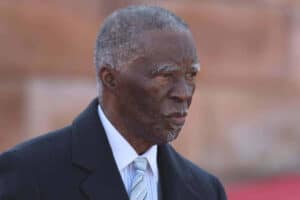Former President Zuma's eligibility to contest the election sparks legal battle, IEC seeks clarity.

Former president Jacob Zuma’s fate is now in the hands of the Constitutional Court after the Electoral Commission of South Africa (IEC) lodged an appeal with it to seek clarity after the Electoral Court in Johannesburg ruled that Zuma may contest the election on 29 May.
The commission made it clear that its decision to resort to the highest court in the land had nothing to do with politics, but was to seek clarity on the issue.
The Electoral Court granted Zuma the right to contest the election despite his criminal record after he was convicted and sentenced to 15 months’ jail for contempt of court.
Electoral Court came under sharp criticism
The Electoral Court came under sharp criticism for its failure to give reasons for its ruling as the matter was crucial to the administration of the election.
There was fear that the ruling would not only delaying preparations for the elections, but set a dangerous precedent of letting a convict run for election.
ALSO READ: A VIEW OF THE WEEK: The Zuma ‘wonderland’ continues
IEC chief electoral officer Sy Mamabolo said uMkhonto weSizwe’s (MK) position as a party contesting the election was not affected by its challenge.
He said the party would remain on the ballot paper and participate in the poll as it was only Zuma’s candidature that was under question.
The commission had no issue with Zuma being the leader and face of the MK Party election campaign. But Section 47 (1)(e) of the Electoral Act disallowed anyone convicted and sentenced to more than 12 months in jail without the option of a fine from entering an election.
Not Zuma’s intention to contest the election
This point was reiterated by political analyst Goodenough Mashego, who said it was not Zuma’s intention to contest the election.
“Zuma knew from the onset that he is not going to become an MP.
ALSO READ: IEC heads to Concourt to appeal Jacob Zuma and MK Party decision (VIDEO)
“He claims that he is an ANC member but is campaigning for MK because he knew that at the end of the day, he couldn’t be an MP for MK when he is not a member of the party,” said Mashego.
Mashego said the court ruling meant Zuma could continue campaigning for MK because the Act did not prohibit that.
Zuma already holds an office
He added: “Zuma already holds an office – the office of the former president which is budgeted for by the National Treasury.
“Zuma is not going to relinquish because it comes with benefits until he dies, whereas he will only get benefits for five years as an MP.”
Mamabolo said it was important that the IEC appealed the decision for a review by the ConCourt to get clarity and to end uncertainty in the minds of the public.
ALSO READ: Zuma: ‘We come to court all the time, but Ramaphosa has never been’ (VIDEO)
“Such clarity is important in the present matter, but also for future elections,” Mamabolo said.
Escaping prosecution
Another analyst, Sandile Swana, said Zuma’s motive to become the president in 2005 was the same as it is now for him to want to contest the election – and that is to escape prosecution.
That was why he disbanded the Scorpions and weakened the National Prosecuting Authority.
During his two terms in office, he failed to grow the economy and under him the country’s national reserves were exhausted and state-owned enterprises hollowed out, while the country’s overdraft galloped to about halfa-trillion during his reign, he said.
But the massive ANC failures continued under President Cyril Ramaphosa, “so there is a need for change in South Africa but Zuma is not the solution because he is part of the problem and he supports people who were part of the problem”, Swana said.
ALSO READ: Ramaphosa opposes Zuma’s appeal to SCA as private prosecution case postponed






